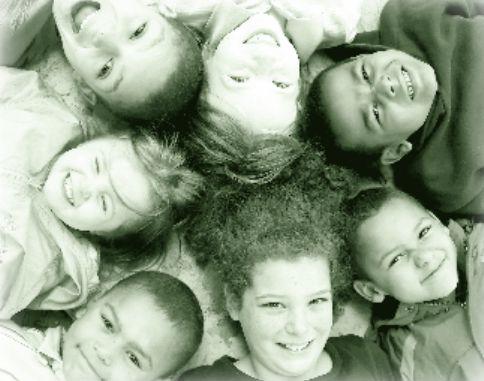“三只老猫”也成戏
2013-04-07byLillianBuenoMccue
by Lillian Bueno Mccue
What do I believe? What laws do I live by? There are so many answers—work, beauty, truth, love—and I hope I do live by them.
But in everyday things I live by the light of a supplementary[额外的] set of laws. Id better call them rules of thumb[经验法则]. Rules of thumb arent very grand, but they do make the wheels go round.
My father and mother sent me to good schools, but the finest thing they did for my education was to have seven children. I was the oldest, and my brothers and sisters were my best teachers.
I learned first to pull my own weight in the boat[尽力做好本职工作]. Kids making a bob-sled[雪橇] have no use for the loafer[流浪者] who wants a free ride. Neither has the world. I learned to make the bed I slept in, and wash the glass I used, and mend what I broke, and mop up[擦干] where I spilled[溢出]. And if I was too lazy or too dainty[挑剔的] or too busy, and left it for someone else, somebody else soon taught me different.
什么为我所信仰?什么是我生活的法则?答案有很多——工作、美丽、真理和爱——但愿我能以它们为准则生活。
但在日常生活中,我还遵循着一套附加法则,即经验法则。这一法则并不十分高深,但它们确实能使事情顺利地进行。
我的父母把我送到很好的学校学习,但他们在教育方面做得最好的事情就是养育了七个孩子。作为家中长女,我的弟弟妹妹们就是我最好的老师。
我首先学会了履行长女的职责。对一个想搭顺风车的流浪者来说,会做雪橇的孩子毫无用处。这样的孩子对世界也没什么用处。我学会了自己铺床、洗自己用过的杯子、修补我弄坏的东西和擦干我弄湿的地方。如果我过于懒惰、挑剔或忙碌,而把这些事留给别人来做,那么很快就有人教我不能这样。
Then, the same way, I learned that anger is a waste. It hurts nobody but me. A fit of the sullens[不高兴] got short shrift[忽视] in our house. It wasnt pulling my weight in the boat. It was spoiling[扫兴] sport. And among seven children it got me nowhere[一事无成]. It might reduce four ocat注1 to three ocat, but the game went on just the same, and where was I? Out of it. Better go in and join the group around the piano and forget my grievance[委屈]. Better still, next time dont fling down[猛然扔下] my bat[球棒] in a tantrum[发脾气]; keep my temper, and stay in the game. Heres a rule of thumb thats important, and the older I get, the more important I think it is. When I can do something, and somebody wants me to do it, I have to do it. The great tragedy[悲剧] of life is not to be needed. As long as you are able and willing to do things for people, you will be needed. Of course you are able; and if so, you cant say no. My mother is 77. In 77 years she has never said no. Today she is so much in demand by 13 grandchildren and countless neighbors that her presence[存在, 出席] is eagerly contended[争夺] for. When I want to see her I have to pretend emergency[紧急情况].
Then theres the rule of curiosity. Your body would die if you stopped feeling hunger and thirst, and your mind will die if you lose your curiosity. This I learned from my father. My father was a naturalist[博物学家]. He could see the beetle[甲虫] under the bark[树皮], and draw it forth unharmed[没有受伤的] for us to squint[眯着眼看] at through the magnifying glass[放大镜]. He sampled[品尝] the taste of 33 different caterpillars[毛毛虫]. Fired[激发] by his example, once, my sister ate an ant. In case you are wondering, caterpillars taste like the green leaves they eat, and ants taste of lemon. I personally havent tasted any entomological specimens[昆虫标本] lately, but I am still rejoicing[高兴的] in the limitless curiosity, that draws me to books and people and places. I hope I never lose it. It would be like pulling down the blind.

其次,同样地,我懂得了生气于事无补。除了我自己,愤怒伤害不了任何人。在我们家,闷闷不乐是不会有人搭理你的。尽管这并不是我的责任,却会令人觉得扫兴。何况在七个孩子中间生闷气对我毫无用处。没有我,“四只老猫”的游戏变成“三只老猫”,照样可以玩得很好。而我呢?只能被排除在外。最好的办法是,忘掉自己的委屈,加入他们,和大家一起围着钢琴玩。最好下次不要发脾气把球棒扔掉;控制住情绪,继续玩游戏。
此外,还有一条重要的经验法则,随着年龄的增长,我越来越意识到它的重要性。当我有能力做一件事,同时有人需要我去做时,我就应该去做。人生最大的悲剧莫过于不为人所需。只要你有能力并且乐意为他人做事,你就会为人所需。你肯定有能力;如果能做到的事,就不要推辞。我母亲已经77岁了。在这77年里,她从未拒绝过别人的请求。今天,十三个孙子孙女们和数不清的邻居仍然很需要她,抢着要见她。当我想见她时,我不得不假装有急事相求呢。
除此之外,还有好奇心法则。当你感觉不到饥饿和干渴,身体就会停止工作;当你失去了好奇心,大脑就会停止运转。这是我从父亲身上学到的。我的父亲是一个博物学家。他能看到树皮下的甲虫,并毫发无伤地捉下来给我们用放大镜研究。他尝过三十三种不同种类的毛毛虫。在父亲的示范下,有一次,妹妹吃了一只蚂蚁。如果你感到好奇,我来告诉你,毛毛虫的味道就像它们所吃的绿叶,蚂蚁的味道则像柠檬。我本人最近并未品尝任何昆虫标本,但我仍欣喜自己有着无限的好奇心。它促使我博览群书,培养了我乐于与人交往和四处旅行的习惯。我希望自己永远都保持这种好奇心。没有它,就仿佛放下了窗帘,无法看见窗外的风景。
Finally, there is the rule of happiness. Happiness is a habit. I was taught to cultivate[培养] it. A big stomach-ache, or a big heart-ache, can interrupt[打扰] happiness, but neither can destroy it unless I permit. My mother simply wouldnt have unhappy faces moping[闷闷不乐的]about the place. If it was a stomachache, she dosed[给药] it. If it was heart-ache, she[ad]ministered注2 love and understanding and lots of interesting things to do, and soon the sun came out again. Even the heartbreaks that cant really be mended, even those seem to yield to[屈服,让步] the habit of finding happiness in doing things, in love and in the memory of love. I hope I never lose that habit either. It would be like putting out the light.
So I learned to live, by the great laws, and these little rules of thumb. I wouldnt take a million dollars for any one of them, or a million times that for the years at home that taught them to me.
最后,还有幸福法则。幸福是一种习惯,而我已学会如何养成这种习惯。剧烈的胃痛或心痛都会阻碍幸福,但没有我的允许,它们绝对不能破坏幸福。我的母亲只是不想看到闷闷不乐的面孔而已。如果有人胃痛,她就给他吃药;如果有人伤心,她就给予爱和理解,并做许多有趣的事让他忘记痛苦,一切很快又会好起来。即使是无法真正修补的心碎,即使有些人似乎任凭习惯使然,从工作中、从爱和对爱的回忆中寻求幸福,我也希望自己永远不会将这一习惯丢弃,因为那就像熄灭生命之灯。
因此我学会了遵循着伟大的准则和这些琐碎的经验法则来生活。即使给我一百万美元,也换不去它们中的任何一个;或者给我无尽的岁月,也交换不了教会我这些法则的家中岁月。
Know More
Rule of Thumb指“经验法则”或者“拇指规则”,通常是指单凭经验来做的方法,较为通用的原则,但并非放之四海而皆准。关于这个短语的起源有三种说法:其一是旧时人们习惯用大拇指的最后一个关节到指甲之间的这一段长度作为天然的测量工具,因为成年男子这一段的平均长度是一英寸(2.54厘米),这个工具方便又实用;其二是以前有经验的酿酒师习惯于用大拇指伸进酿酒池中测量发酵过程的温度,来了解酿造的进展情况;还有一种说法是农业播种时,为了达到合适的种子深度,人们经常用拇指快速地测量掩埋的深浅。
引申开来,rule of thumb可以理解成“凭经验的”,或者做事的“法则”,如:He is a rule-of-thumb photographer.(他是一个靠经验摄影的摄影家。)His most basic rule of thumb is: be patient.(他最根本的法则就是有耐心。)
